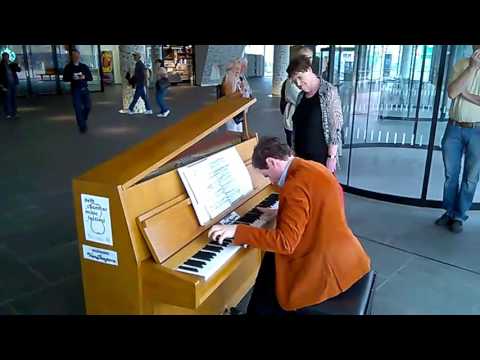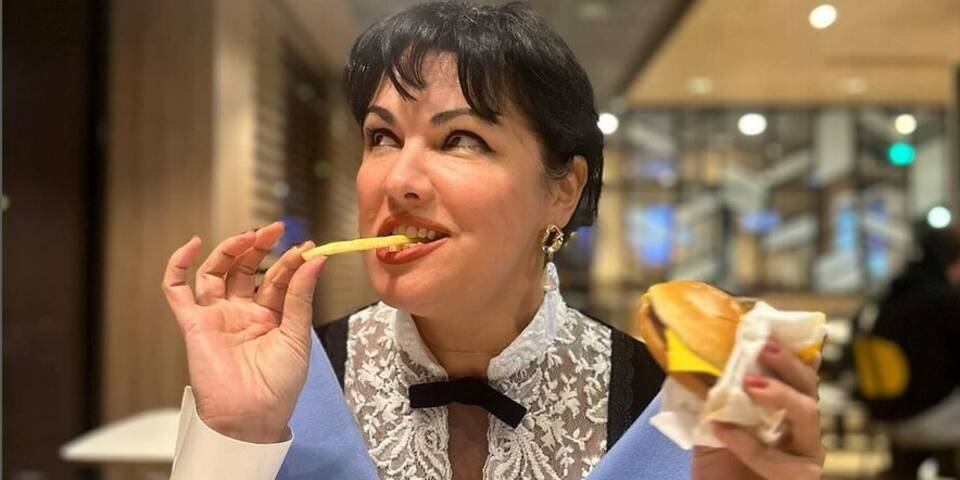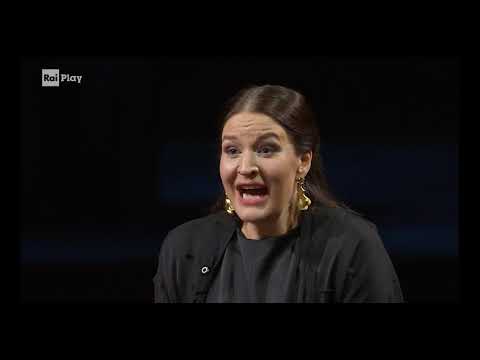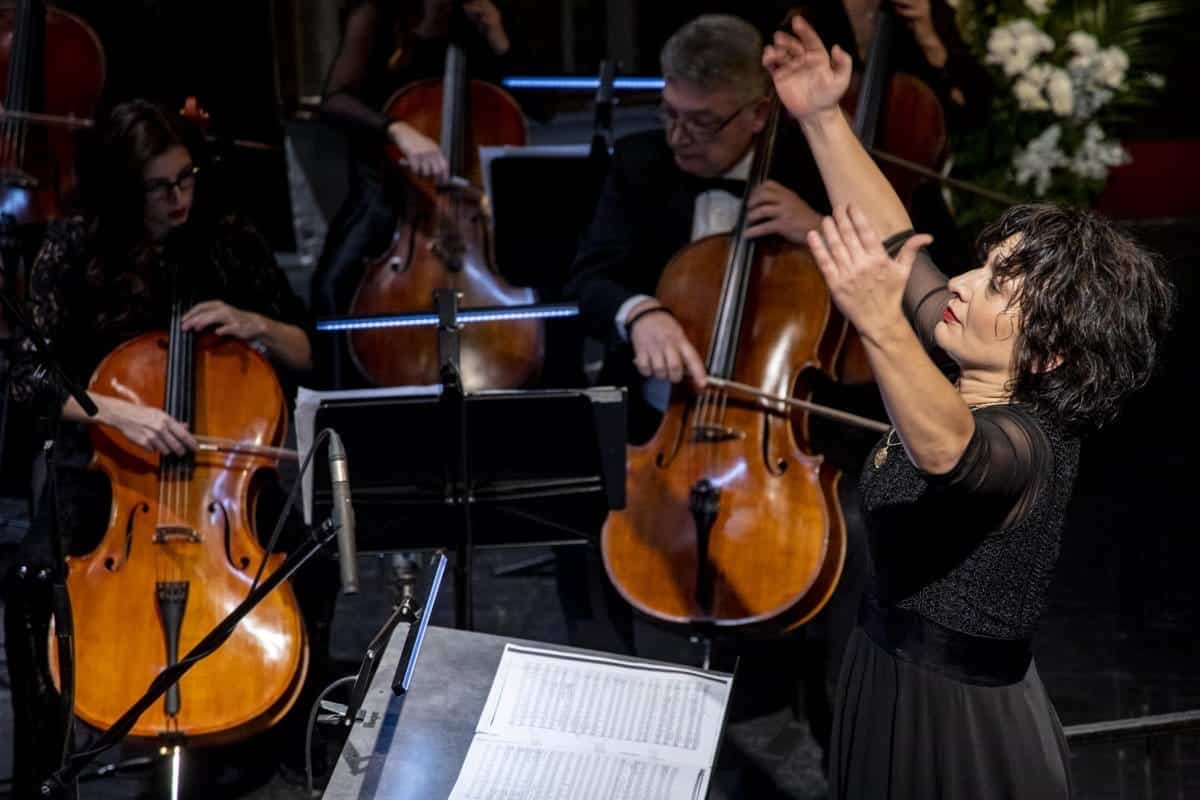Why are competitions failing to produce star violinists?
mainThe past decade has produced outstanding talents on the piano, most of them from major competitions.
Daniil Trifonov (Tchaikovsky), Seong-jin Cho (Chopin), Beatrice Rana (Van Cliburn), Boris Giltburg (Reine Elisabeth) and quite a few others since 2008 have already left big footprints on the concert stage.

But I struggle to name a single winner of a major violin competition who has made a comparable mark apart from, perhaps, Ray Chen (Reine Elisabeth, 2009).
Now why is that?
Last night Montreal announced yet another violin competition. Is that what we really need?





Stars are only ever produced by the popular media. Never by competitions or concert audiences.
You are a star, if people who would never know you otherwise, have heard your name.
Great question, it’s true that there’s not one prize winner let alone first prize winners that really made it… But the question is, how are stars really made?
Why do most competitions fail to produce stars? The question is more like, why do competitions attempt to produce stars to begin with? I think the answer is, because it’s an industry shortcut. It has nothing to do with art. Easier for agents to use competition winners as a starting point than to scout, say, the recitals of thousands of players all over the world every year to pick a few marketable ones – that would be impossible.
Look at conducting competitions. How many have produced stars in the past 50 years, and how many prize winners are forgotten except by a few specialists? The tally is even worse.
And ultimately, competitions, like any decisions made by committee, tend to award those who are the most in the middle. Miriam Fried is a fine violinist, but her beating Gidon Kremer at QE competition 45 years is one such example of the thornier players being harder to come through when it’s time to please many constituencies.
I’ve always thought that pianists tend to be stronger musicians, and mostly because their view of music is wider, more all-encompassing. Many violinists, even fine ones, can’t read a symphonic score easily and may not be as good at seeing / having a big picture.
“Many violinists, even fine ones, can’t read a symphonic score easily and may not be as good at seeing / having a big picture.”
And your authority for such a statement would be? This has not been my experience. Sure, there are always examples to be found, but those violinists I’ve worked with over my 30+ years around various top violin studios in the country would strongly counter your suggestion. And it is obligatory that their students have a FULL score of their concerti for study. Sure, we all could improve our score reading, but, having played from full score for conducting classes I can also tell you MANY pianists are not up to that task either. Of course, “realizing” a score on the piano is not the same as simply being able to properly glean information from it.
Very true!!
Hasn’t it always been the case that pianists have had a higher profile than violinists? How many violinists over the last 50-60 years have become truly household names? I’d say two: first Menuhin and then Perlman. I’m not sure why this should be the case. All that occurs to me is that the violin doesn’t have the same solo-recital potential as the piano, so violinists are only ever heard with orchestras, in chamber set-ups, or accompanies by a (usually equally well-known) pianist, whereas a pianist doesn’t have to share the spotlight with anyone.
I think Jackie’s point is spot on: the main purpose of competitions is to serve as a handy time- and effort-saving filter for agents and record companies. That said, winning competitions on any instrument will not guarantee a subsequent career any more than not winning them will stymie one. I seem to remember that Alfred Brendel only entered one competition when he was young; I think he came third.
And is there truly a need to become a so called “household name”? Considering what typically happens to the music making quality of those who reach household status, the goal is worth abolishing.
Indeed, but that’s a whole nother discussion, really. I think it’s indisputable that classical/”serious” music needs standard-bearers who are visible to people who are not particularly devotees – first and foremost, to secure and justify subsidies. If the only time a certain concert hall or orchestra gets any noticeable coverage in the media is when the current Lang Lang of the Month private-jets into town, so be it. It’s the way all the arts work and it’s been the case for the best part of a century: Nijinsky and Pavlova, Nureyev and Fonteyn, Picasso, Caruso, Callas, Rubinstein, Bernstein, the Three Tenors, arguably Barenboim today (albeit mostly when he’s discussing non-musical issues)…. If I may be excused a particularly glib observation, “arts” is, after all, an anagram of “star”. And I’m not sure I agree that in any of those examples their artistic integrity was compromised by their occasional forays into unfortunate – sometimes even embarrassing – dumbing-down for the masses. Did André Previn lose credibility as an able conductor and musician after he larked about with Eric and Ern on prime-time television? Surely not.
I think all your points are reasonable but I wonder about yr solo-potential explanation for piano-over-violin. The number of solo recitals at Carnegie Hall is shrinking fast and has been so for years. Today’s concert pianists (I read) make most of their appearances in concertos.
Why that’s true I’ve no idea. Personally I think a piano under the right hands can do it all. Maybe its chameleon-like quality helps explain the extra appeal of pianists. Visually there’s nothing like a concert violinist, especially when you can see the left hand. Somewhere in Monsaignon’s three hours on Richter the Russian, holding a fiddle and a bow in each hand, turns to the lens and asks, “How can anybody play this thing?!”
How about revisiting Fabio Luisi’s remarks on how to assemble a jury from last February:
https://slippedisc.com/2018/02/fabio-luisi-quits-paganini-competition-over-jury-fears/
(excerpted)
“…..While student violinists … are used to be heard by other violinists – teachers and professors in their instrument – during their academic career, a competition should be a start in a professional career.
Who can boost such a career? Professors? Teachers?
…… the best people to help for a professional start for a young musician are those who can hire him/her, and that is definitely not other musicians of the same instrument, no matter how well known.
Therefore I choose people who really can boost a career: conductors, manager of orchestras, concertmasters, agents (artist managers), journalists.
The importance of a competition is not how famous are the jury’s members, but how important are the prizes, and that persons who can invite the winner for concerts are members of the jury. They are capable in evaluating the skills of the candidates, and they know better then other instrumentalists if they, the candidates and eventually the winners, will be able to start a successful career.
A famous violin soloist will not be able to invite a winner of a violin competition for concerts. I, as a chief conductor of my orchestra, am. ……
This is what a competition is about, not a continuation of an academic evaluation, but a complete different matter.
I might not be a violinist, and as a matter of fact I am not. Nevertheless I can evaluate a violinist quite well.
…… The ideas I had – und still have – about a competion are different, and they are aimed at a career’s start, not a further academic evaluation.”
Nicola Benedetti’s career was launched by winning the BBC Young Musician contest, wasn’t it?
That said:
Musical competitions are like political campaigns: the winner tends to be the safe bet, the one with the broadest appeal to people who don’t otherwise know or care much about the issue (whether it’s politics or music). As much as I love Benedetti’s playing, I’m not going to pretend that she’s got one of those super-sized musical personalities that tends to overwhelm the music and turn everything into a vehicle for itself (- Which to me is a good thing. I never could listen to Perlman for very long, or Galway for that matter, unless it was in “look at me”-type repertoire like Sarasate or some such.)
(P.S. Nicola, if you’re reading this: please release a recording of the Sibelius concerto so I can buy it. Thanks.)
If one consults a list of finalists of major international competitions since the 1950’s (piano, violon and others), you may be surprised to find out that many 2nd, third, 4th or 5th prize winners DID become deserving ‘stars’. So did ‘stars’ who never even entered international competitions !
– Why ? For the most part, top winners tend to take no risks; technique must be flawless, interpretations are ‘middle-of-the-road’ – so to please the majority of diverse judges. Originality, personality, inventiveness are usually discouraged.
Competitions are wonderful occasions for young talents to make themselves visible and to get their feet wet. It is like the first few weeks on the new job. Whether you win 1st or not, you have made your case. The acid test is how one maintains their careers, repertoire, recordings, etc, and let us not forget the luxury of today’s networking and social media networks to build global fan bases. Once you are at a competition, it is over. It takes years to establish and sustain a long term career (in any profession, of course). The real answers will come in twenty years from now and see how the artists you mention are doing.
I think competition prizes can be a wonderful start for a career provided they include a series of important international concerts and a recording. I don’t see how an artist can be helped mainly with a cash award. Big mistake of some organizers. I emphasize international concerts as the most important reward.
Many interesting points, but it should be clarified that the Montreal competition (which, disregarding its predecessors, has been around since 2002), rotates violin, piano and voice. Rana won first in 2011. The last violin winner, in 2016, was Ayana Tsuji (of Japan).
In reading all the comments, one can draw several conclusions. Competitions need new formats. In the 21st century, competitions can be catalysts not only for the performers, but for the repertoire. I have a concept for competitions which can be utilized for all instruments, and can help broaden careers for young artists and greatly expand repertoire across the board. This can also expand performance opportunities for both the performers and the repertoire. Too much to freely explain here, but happy to answer privately for those interested.
The Van Cliburn automatically books the winner in for two years’ worth of concerts, I believe. That’s the real prize – exposure in context of actual concerts. There is no analogous reward in any violin competition.
The one problem with that is, those concerts are at a reduced fee (subsidized by the competition or maybe the foundation), and if the orchestra wants that pianist back again they have to pay full price the next time. We had a number of wonderful pianists come and perform with us… one time only.
Janine Jansen, Julia Fischer, Hilary Hahn and then… well, essentially nobody younger that would make me buy a CD (by the way, all women).
Technical is now considered to be way ahead of musical ability and artistry development. You only have to turn the radio onto a live concert and so many now are generic snd sound the same. Leeds Piano Competion coming up – see how they judge a firework Prokofieff concerto by a Korean pianist with an Italian perhaps playing what many would technically say to be the simpler Beethoven Fourth and yet phrased impecably with breath like a good singer – what happened in 2012. Two out of the six finalists made music and the others played the piano. You need far more than technical ability to be a star.
Hadelich won Indianapolis in 2006 and is quite a star, more of one than some of those listed anyway.
I agree with the above poster that the best prize is exposure by the way of winner’s showcase concerts.
Music aint sports.So said violin rapper Big Jascha H. And everything has its place. The parameters of competitons are a source of inspiration and excellence for example Same is true of college. Many pros are playing at pro level before college. It certainly does no harm and knowledge is commendable But going to college or winning a competition is no guarantee of success.